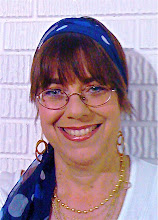I thought, because of my health issues, I had to be at home. Dr. Kathryn Maracchino told me last year to "work to your abilities, not your disabilities". I came to the first Hospice Symposium. Since then I have driven 5000 miles each summer with my daughter to help people in New Orleans, and to just have an adventure with her. I think that has changed both our lives. This lisence to GO that I got from Kathryn in one instant absolutely changed my life. That First Symposium then changed my views of life itself. This Second Symposium contimues to alter my basic values and views for the better.
 I have learned in our culture , especially in the USA, we AFRAID of death. Sharen Myers quoted Margaret Mead who said "When someone is born, we rejoice. When someone marries, we celebrate. When someone dies, we pretend nothing happened." Death IS the equal and opposite process of birth. If we want to live well, we need to die well and vice versa. We may try to ignore this for ourselves, but we are faced with death full force with our pets. We love them so much and they love us so purely. We are responsible for them, feed them and take care of them, but in reality they take care of us. I know there is an amazing spiritual, pure love connection with our animals. I know I am being loved when I look into a kitty like Zoomi's eyes. There is a message there, and now I am not afraid to admit that, and thrive in that knowledge. The Hospice Symposium has validated the path and the truth that I feel in my gut. I have found the courage to change my life from that knowledge. Something about dealing with the moment of death teaches us how to well live our lives. There is the very kernal of sacredness here, and the lesson is to experience it. The speakers here have taught me that THE most important thing is to BE PRESENT and open to the experience. This was presented about the dying process, but it has taught me about the living process. This is what I learn when I look into those eyes: love is here, in the moment, and I must learn to live with this love first and foremost in my every moment.
I have learned in our culture , especially in the USA, we AFRAID of death. Sharen Myers quoted Margaret Mead who said "When someone is born, we rejoice. When someone marries, we celebrate. When someone dies, we pretend nothing happened." Death IS the equal and opposite process of birth. If we want to live well, we need to die well and vice versa. We may try to ignore this for ourselves, but we are faced with death full force with our pets. We love them so much and they love us so purely. We are responsible for them, feed them and take care of them, but in reality they take care of us. I know there is an amazing spiritual, pure love connection with our animals. I know I am being loved when I look into a kitty like Zoomi's eyes. There is a message there, and now I am not afraid to admit that, and thrive in that knowledge. The Hospice Symposium has validated the path and the truth that I feel in my gut. I have found the courage to change my life from that knowledge. Something about dealing with the moment of death teaches us how to well live our lives. There is the very kernal of sacredness here, and the lesson is to experience it. The speakers here have taught me that THE most important thing is to BE PRESENT and open to the experience. This was presented about the dying process, but it has taught me about the living process. This is what I learn when I look into those eyes: love is here, in the moment, and I must learn to live with this love first and foremost in my every moment.


















